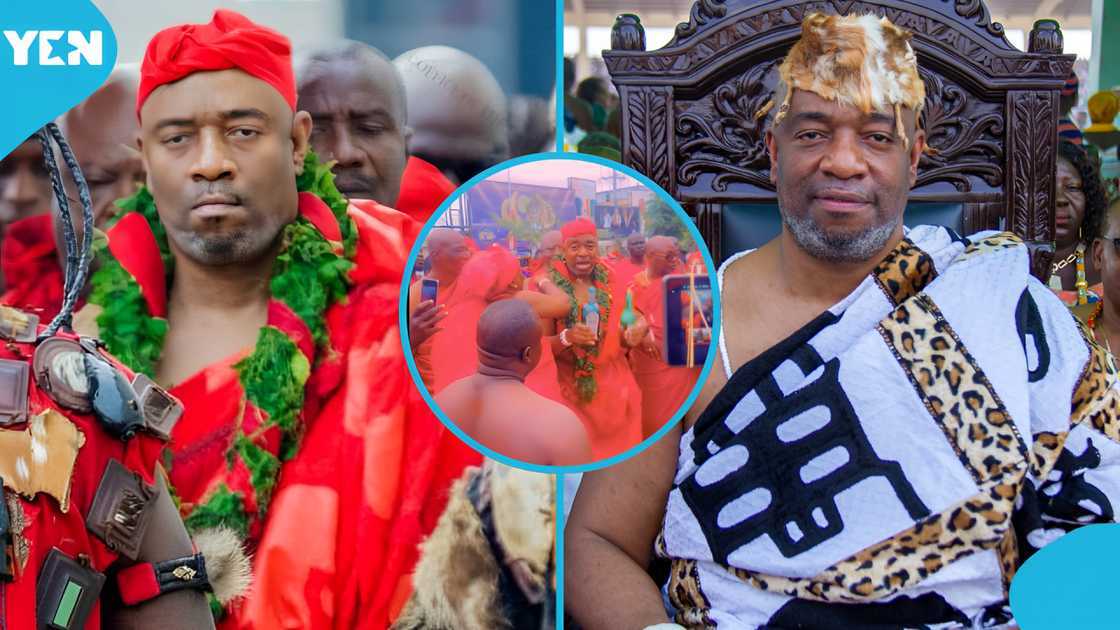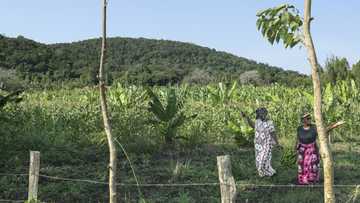- Farmers questioned Sunyani chiefs’ Friday farming ban and sought clarity on backyard gardens and livestock
- Experts cautioned that the Friday farming ban could reduce productivity and affect rural livelihoods in the future
- Sunyani chiefs outlawed funerals on streets, school parks, and other public spaces with immediate effect
The Sunyani Traditional Council has reintroduced an age-old custom by placing a total ban on all farming activities every Friday across all communities under its jurisdiction.

Source: Getty Images
The Council has also prohibited the performance of funeral rites, including the laying of mortal remains in open spaces such as streets, access roads, and school parks within the traditional area.
Addressing the media in Sunyani on behalf of the Paramount Chief, Odeefuor Ogyeamansan Boahen Korkor II, the Akwamuhene, Nana Kwaku Sarbeng Ababio, explained that the decision aims to preserve sacred traditions, promote rest for the earth, and restore community discipline and cohesion.
According to him, Fridays have been designated as sacred days during which farmers are expected to stay away from their farms to observe traditional rites and engage in communal activities, a practice he said was common among their ancestors.
“Our forefathers observed Fridays as sacred days to rest the land and offer thanks to the gods. We are only reviving what sustained our ancestors spiritually and socially,” Nana Sarbeng Ababio said.
The traditional authorities advised all non-indigenous residents of Sunyani to align themselves with the Gyaase clan, whose duty is to receive and integrate strangers into the community. This, they said, would help ensure that every resident has an identifiable family to assist in funeral arrangements.
He said, if you don’t want to associate with the Gyaase family, there are the Adontene, Akwamu, Benkum, Nifa, Ankobea, or Kyidom royal families who will be willing to assist you.
The Sunyani Traditional Council warned that it will deal ruthlessly with anyone who goes contrary to these directives.
However, the announcement has sparked mixed reactions among residents, particularly farmers who rely on daily farm work for survival.
Naomi Achiaa, a young farmer at Asufufu, a suburb of Sunyani, told Yen.com.gh that she strongly disagrees with the decision and has called for further clarification.
“We need to know if this ban also applies to people with backyard farms like me. Some of us grow vegetables and maize around our homes to feed our families. We fetch fresh kontomire and other vegetables to sell before we can buy meat and other ingredients to prepare our meals. Should we also stop working on Fridays?” she asked.
Similarly, Abdulai Fatao and Wofa Yaw Emmanuel, both livestock farmers along the Sunyani-Techiman road, said that while they respect the authority of the chiefs, the directive feels like a command that affects everyone in the traditional area.
“We are not sure whether poultry and livestock farmers are also included. If we must abandon our farms every Friday, the growth and feeding of our animals will be affected,” they said.
A private agricultural extension and management expert, Alhassan Abugri, also acknowledged that Nananom (traditional leaders) are custodians of the land and must be allowed to uphold tradition. However, he expressed fear that the weekly farming ban could have economic implications if not reviewed.
He said that though the ban might seem insignificant, it could reduce productivity, delay planting and harvesting, and negatively impact food supply and income levels among rural households.
Meanwhile, the Sunyani Traditional Council has urged residents to comply with the directive, assuring that traditional leaders will conduct public education to ensure its smooth and peaceful implementation.

Source: Facebook
Rival challenges Ga Mantse’s rightful throne
Previously, YEN.com.gh reported that Ga Mantse Nii Tackie Teiko Tsuru II was spotted in a solemn past engagement with the deities linked to his throne.
The video resurfaced after his rival, Nii Adama Latse II, intensified efforts to disprove his occupation of the Ga Mashie seat.
The Ghanaian king’s emotional moment as he sternly affirmed his right to the throne garnered significant attention.
Source: YEN.com.gh
Source: Yen.com.gh













